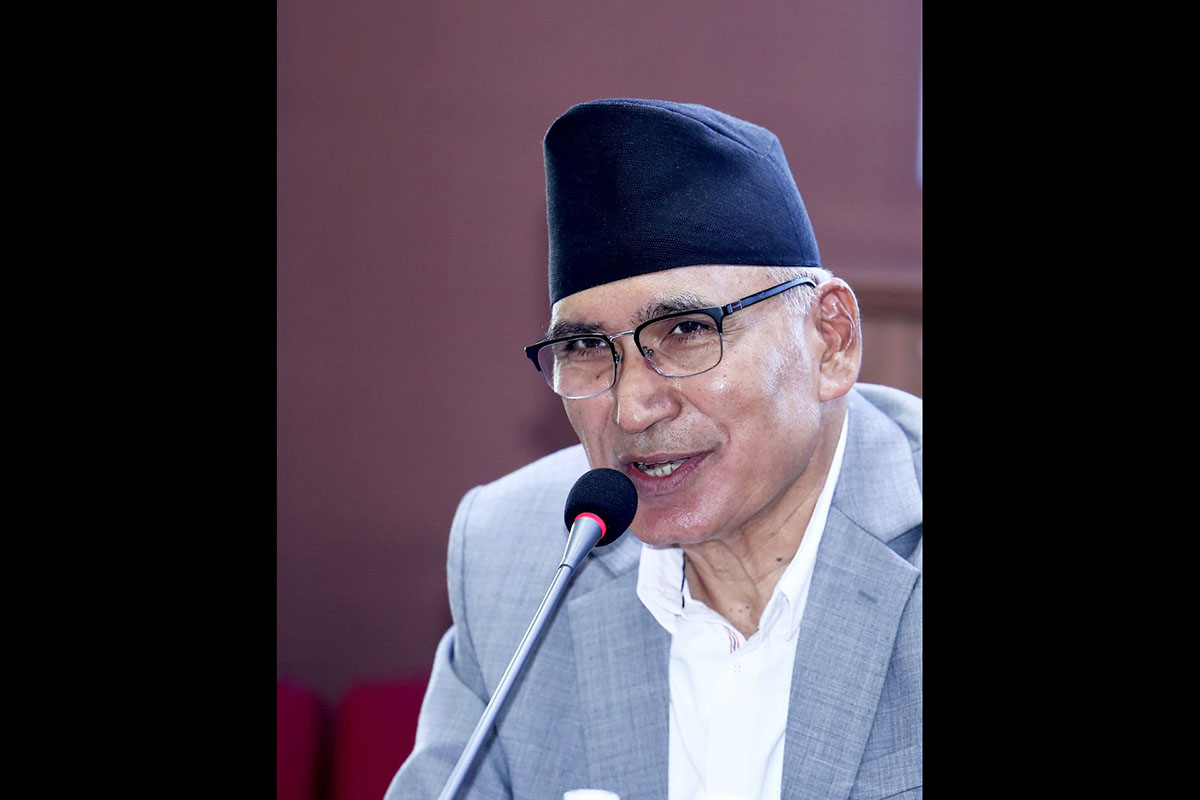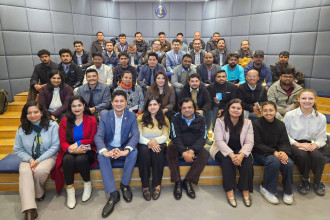
KATHMANDU: Deputy Prime Minister and Minister for Finance Bishnu Prasad Paudel has stated that the government is giving high priority to economic reform.
At a discussion with development partners regarding the upcoming budget at his office today, Paudel said that the government has already initiated economic reforms and vowed to make them more effective in the future. “We have been implementing economic reforms for some time now and have witnessed positive results. We will accord high priority to economic reform in the future,” he pledged.
Finance Minister Paudel acknowledged key aspects driving economic reform, including amendments in legislation through ordinance, recommendations furnished by the High-Level Economic Reform Suggestions Commission, and various policy decisions. He said the upcoming annual budget would primarily focus on encouraging the private sector, creating jobs, boosting domestic production, and strengthening the national economy.
Admitting that ensuring resources for the budget remains challenging, Paudel stated that emphasis would be placed on austerity, reducing unnecessary spending, and leveraging limited available resources to ensure high returns. He added that the government underscores the prudent use of foreign aid, aligning it with national needs and priorities, as well as addressing issues related to low capital expenditure.
The Finance Minister expressed that the government of Nepal expects continued support from neighbouring countries and development partners for its development initiatives.
Ghanashyam Upadhyay, Secretary at the Ministry of Finance, pledged to prioritise maintaining fiscal discipline and boosting the morale of the private sector in the upcoming budget.
Similarly, Dhaniram Sharma, Chief of the International Economic Assistance Coordination Division under the Ministry, noted that the economy has improved in this fiscal year compared to the last.
Participants in the discussion included representatives from China, India, the USA, the UK, Japan, South Korea, Australia, Norway, Germany, Finland, the European Union, the World Bank, the Asian Development Bank, the International Monetary Fund, and other entities.
During the discussion, they provided suggestions on revenue mobilisation, optimal resource utilisation, realistic budget formulation, and effective implementation. They also reaffirmed their commitment to continued support for Nepal’s development in the future.






